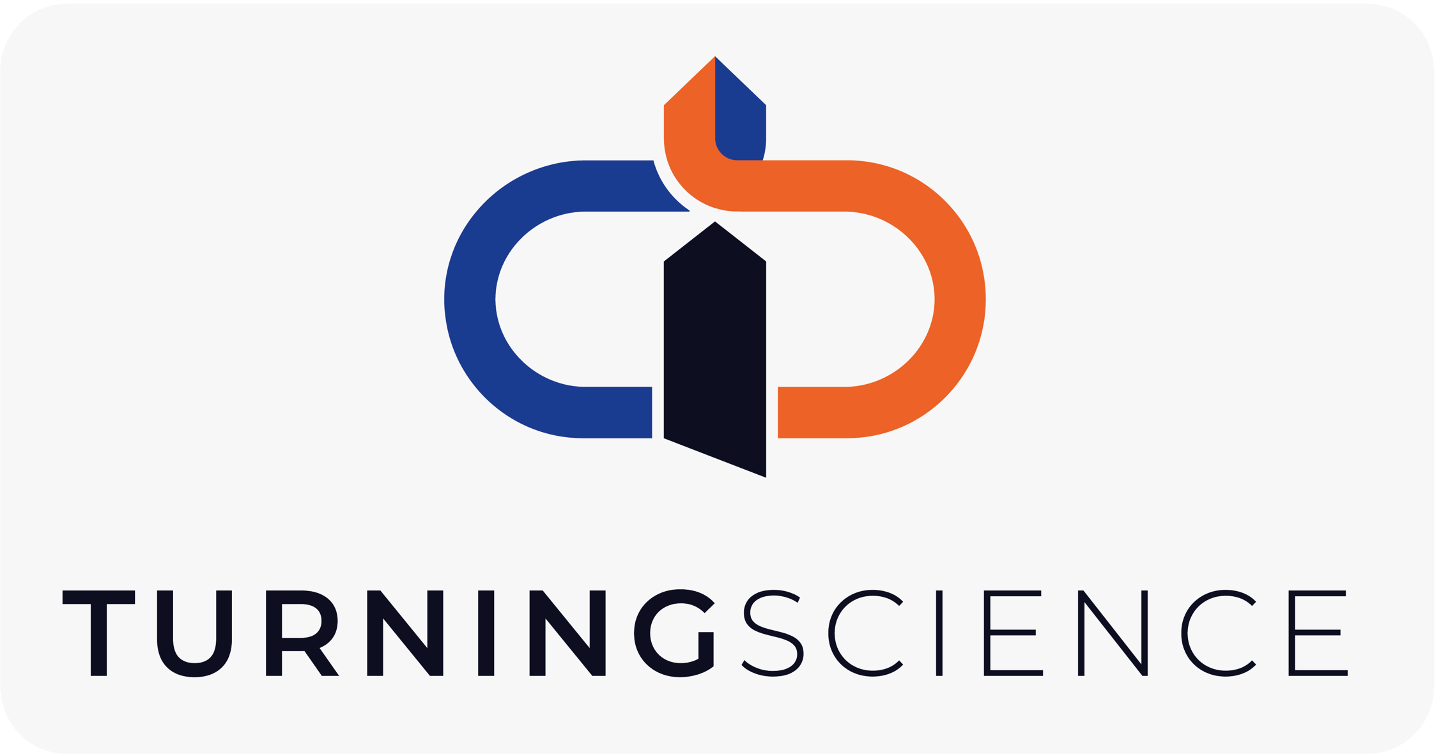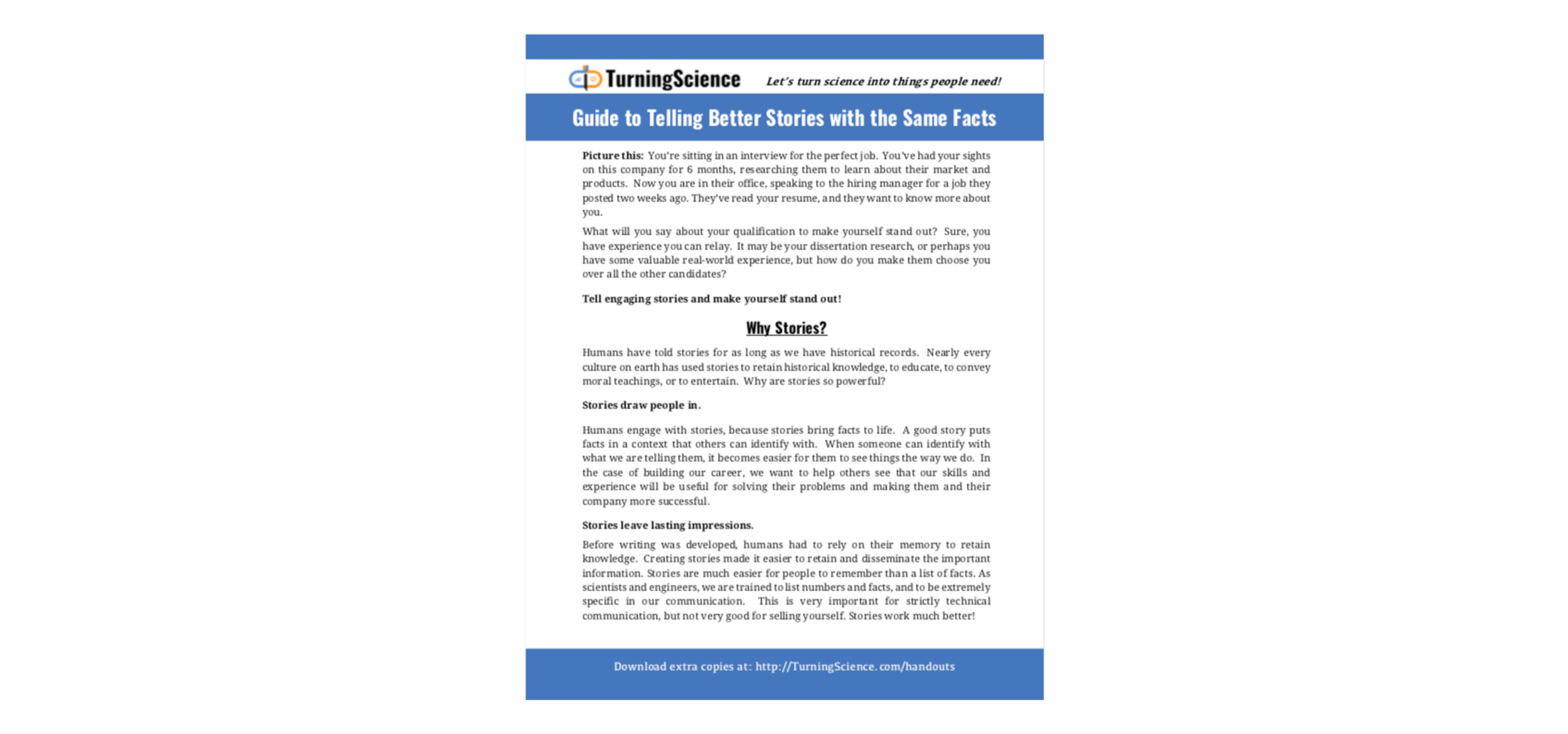How to Impress an Interviewer
Picture this:
You are sitting in an interview with a company you’ve had your eye on for months. You’ve done your research, and you know what this company is all about. Their technology is innovative and their products are poised to make a real impact in the market. You can see yourself working there, and you know how you can contribute to their success.
You are sitting in a conference room with the hiring manager, and she asks you to describe how your experience qualifies you for this job.
This is your chance! What do you say to make her think, “Yes! This is exactly who we need to add to our team”?
Pull out a few of those engaging stories you’ve been rehearsing!
What? You don’t have any stories ready?
Well, it’s a good thing this interview is imaginary, because you have time to prepare before the real one arrives.
Why Stories?
People have used stories since before writing was invented. Nearly every culture on earth has used stories to educate, convey moral teachings, entertain, and preserve history. Why are stories so useful?
Stories Draw People In
A good story brings facts to life and puts them in a context others can identify with. People engage with good stories, because they begin to view themselves in the situation being described. When someone can identify with the experience being described, it becomes much easier for them to see things from our perspective. In an interview situation, we are trying to convince other people that we can solve their problems and contribute to their organization. If we convey our experiences using stories our interviewer can identify with, we will do a much better job of convincing them we can help solve their problems.
Stories Leave Lasting Impressions
Before writing was developed, humans had to rely on their memory to retain important information and historical facts. Many societies created stories as a system for preserving history, because stories are so much easier for people to remember than a list of facts.
As scientists and engineers, we are trained to be extremely specific when we communicate. This is especially true for those of us with advanced degrees who have spent years in academic research and have published journal articles. Precision and accuracy are very important for science and engineering work, but this habit becomes a liability when we go looking for a job. Learning to convey your past successes (and failures) through engaging stories is much more effective in an interview.
Want to learn more about telling stories?
Get our free Guide to Telling Better Stories
When Can You Tell Stories?
There are many opportunities to tell stories, but here are the top four:
1. In an interview: Develop a series of stories you can pull out to answer a whole range of questions you might be asked. Examples of questions that are just asking for a good story include the following:
Can you please tell me about your most significant accomplishment?
What specific skills or expertise can you bring to the company/group?
Tell me about a big problem you encountered and how you solved it.
Have you ever faced a problem you didn’t know how to solve? What did you do?
If you have a story ready for each of the questions you anticipate, you’ll make a much better impression than you would with an answer that is improvised at the last minute.
2. At networking events: Stories can be a great way to engage people you meet at networking events. It’s a good idea to develop a few short stories you can pull out in conversations when you’ve just met someone. Make sure the stories you tell at a networking event are short and to the point, because no one wants to sit and listen to a 20-minute story. If you can say something engaging to draw people in, you are much more likely to make a genuine connection, rather than simply walk away with a business card.
3. When someone asks “So, what do you do?”: This question is common at networking events, but it applies to many other situations as well. Your answer to this question may not be a full story, per se, but it should be carefully planned to grab their attention quickly. Instead of listing your job title and a few of your responsibilities, use 15 seconds to convey the value you bring to the world.
4. With friends and family: The first few times you tell a new story, it probably won’t come out the way you hoped, so find as many opportunities as you can to practice and refine each one. Friends and family can be great for trying out new stories. Ask a good friend to listen to a few and give you some feedback. Pull a few out at a family gathering when relatives you haven’t seen in a while ask what you are up to. Do they understand what you are telling them? If not, revise, simplify, and try again.
Tell Stories Your Grandparents Would Understand
When you develop your stories, it’s important to make them simple and easy to understand. The people who interview you may be very smart, but they probably won’t be familiar with the details of your work. This is especially true if you are moving into a new technology or application or if you are moving from an academic research environment into industry. It’s important to make your stories easily understandable to a wide audience. Focus on why they might care about your work.
A good technique I like to use is to tell stories that my grandparents would understand. Now, I don’t know your grandparents. They may have a Ph.D. in nuclear physics for all I know, but they are probably not very familiar with what you do. If you develop stories they would understand, you will be successful addressing the wide range of people you will encounter in your job search.
Useful Story Elements
If you are struggling to think of some good stores, I’ve listed five useful topics that make great sources for stories. This is particularly helpful for students or anyone else who has spent their career in an academic environment. If you want to tell engaging stories, make sure people in the private sector can relate to your experience, and try using the following elements:
Projects: Everything in industry is done as a project, with a schedule, a budget, and intermediate milestones that help the team track progress along the way. If you can describe your experience in these terms, you will have their attention. Most other candidates coming from academia will not be doing this.
Results: In industry, results are everything. Tell them what you accomplished and why it was important. Be quantitative. Did your work create a solution at half the cost of the current approach? Was the output of the device you built three times higher than anything that had been done to date? Even results from fundamental science research can be put in terms that will impress a hiring manager.
Problems: No project in industry ever goes completely to plan, and managers need smart, creative technical people to solve their problems quickly and efficiently. No one expects all your projects to have gone smoothly, so go ahead and talk about the problems. Use them as opportunities to describe how you found solutions. If you had many things go wrong in your dissertation project, that’s fine! You have lots of content to tell great stories about the awesome problem solver you are!
Lessons: In academia, everyone expects you to be the smartest. Not so in industry. That’s just not realistic. They do expect you to learn from mistakes and to keep getting better. Tell stories that demonstrate how you learned from problems or mistakes. This will add to your credibility, not reduce it.
Leadership: Leadership is very important in industry. This is less about being a manager and more about having the ability to influence others. In an academic environment, facts tend to speak for themselves. In industry, ideas have to be sold. People have to be convinced that your idea is the best one, so tell stories that show you can influence other people.
Practice, Practice, Practice
Practice telling your stories until they feel natural and give the impression you want to convey. I suggest you get a friend to work with and practice telling each other your stories, giving each other feedback on what sounds good and what isn’t working. Keep refining them until they sound powerful and engaging.
Telling stories about your experience is a powerful way to stand out from the crowd of other interviewees who are likely to just list facts and answer questions with boring statements. Follow these guidelines and you are on your way to convincing an interviewer that you have relevant experience, that you understand the issues they care about, and that you can solve their problems!



